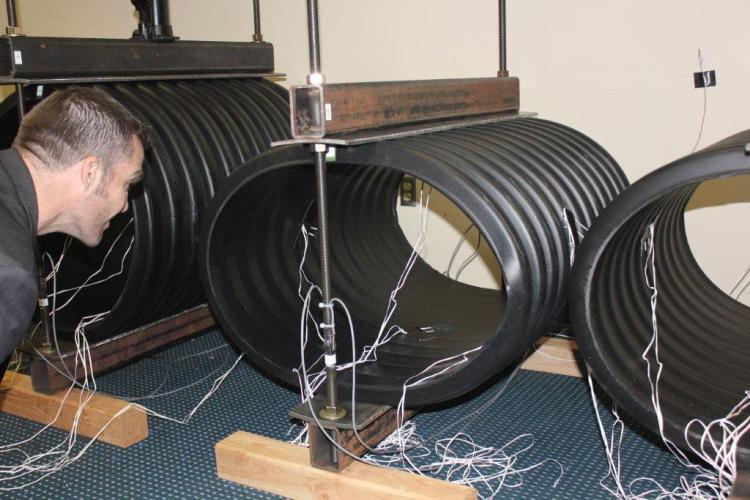
ORITE addresses infrastructure needs through thermoplastics research

Ohio University’s Ohio Research Institute for Transportation and the Environment (ORITE) recently collaborated with the National Cooperative Highway Research Program (NCHRP) on a study that assessed the performance of pipes created from recycled plastic.
ORITE conducted a year-long experiment in which the pipes were subjected to a high level of constant strain and observed that pipes with 49.5% recycled material performed as well as virgin resin pipes, which do not use any recycled plastics. These findings helped develop new standards and test procedures for thermoplastic pipes made with recycled materials. The American Association of State Highway and Transportation Officials (AASHTO) will use these standards as a model for implementation in the United States and internationally.
“Having the new standards approved by AASHTO will mean usage of these pipes will be widely adopted,” Shad Sargand, professor of civil engineering and vice director of ORITE, said.
The widespread use of the pipes is important because plastic waste enters oceans, landfills, and incinerators daily, resulting in 80 pounds of plastic waste per person each year. The design of the thermoplastic pipes discussed in the study will use recycled plastics to reduce waste pollution.
“Using recycled plastic in pipe reduces the waste stream, and the pipes can be used to help keep the water clean, thus the recycled plastic pipes improve the environment in two ways,” Sargand said.
While this study focused on the implementation of these pipes for highway drainage purposes, they can also be used in agriculture, mining, and other industrial and infrastructure applications. Thermoplastic pipe with recycled content provides a viable alternative for infrastructure design while helping to address the growing need to alleviate plastic pollution.
